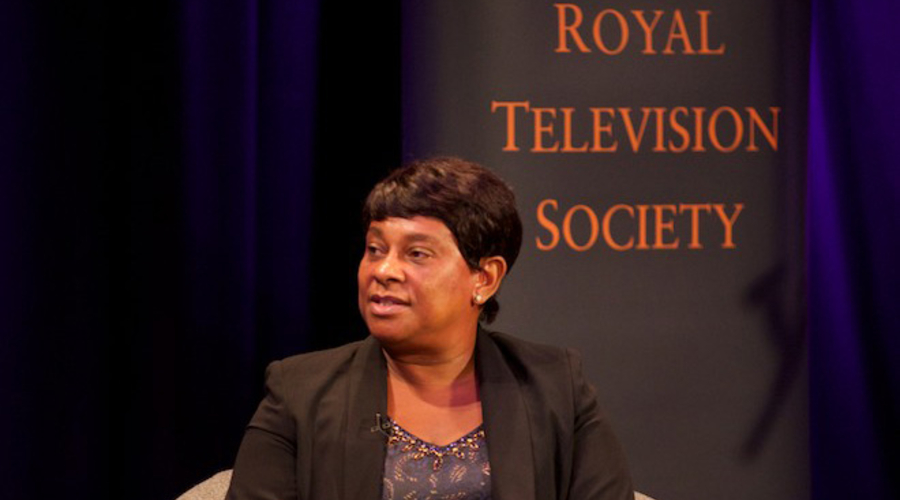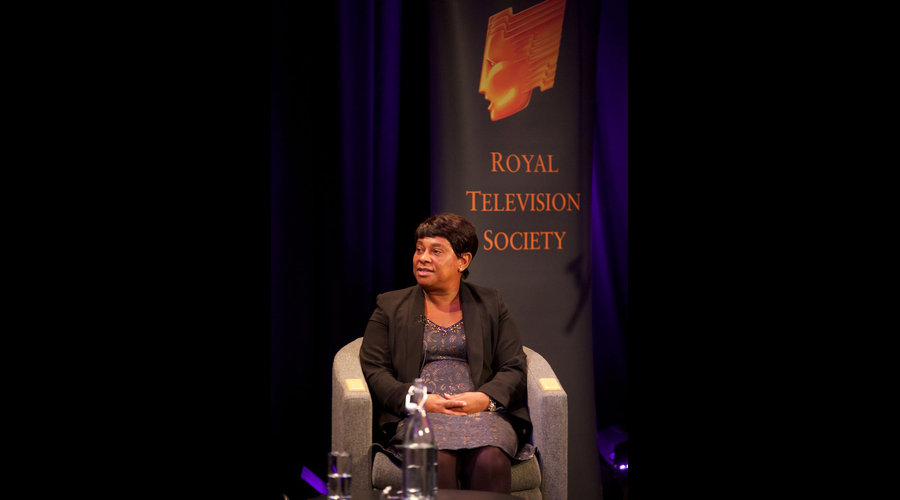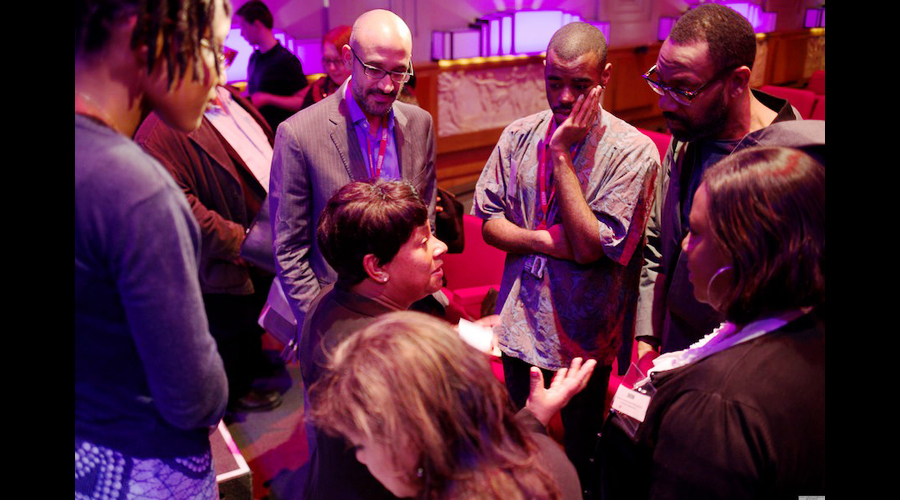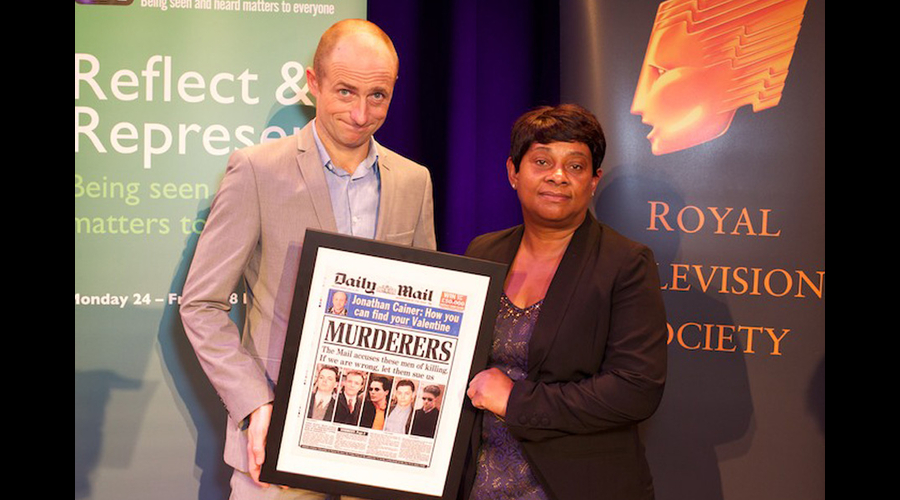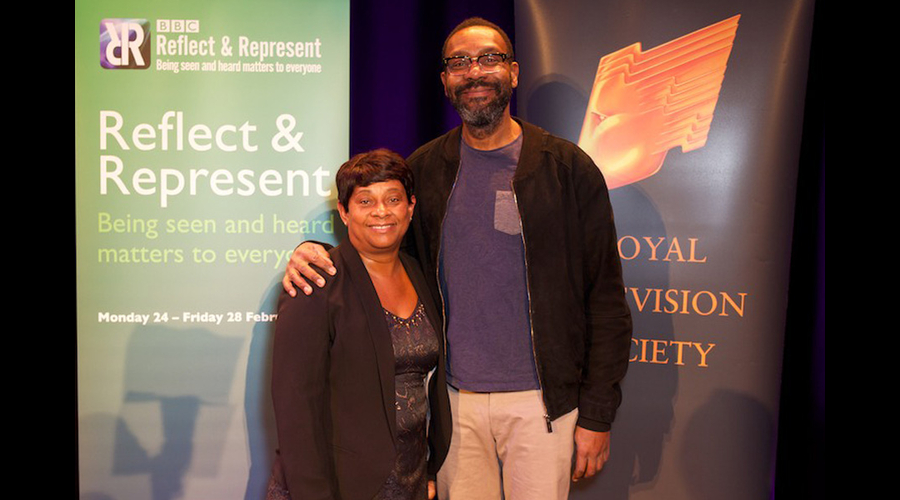The murder of her son Stephen Lawrence in a racist attack in 2003 changed the life of Doreen Lawrence – to the point, she admitted, that “ I sometimes don’t even recognise myself”.
“I’m a very quiet person,” she continued. “I don’t like to stand out from the crowd – I like to be in the background. But I felt that because of what happened I had to have a voice.”
Lawrence, who was appearing at the joint RTS/BBC event, “In Conversation With Baroness Doreen Lawrence”, found her voice. Her campaign for justice led to the landmark MacPherson inquiry, which concluded that the Metropolitan Police was “institutionally racist”. Eventually, 19 years after the murder of her son in south east London, two men – Gary Dobson and David Norris – were sentenced to life, although three others suspected of involvement remain free.
BBC investigative reporter Mark Daly interviewed Lawrence at the event, describing her as “the most consistent thorn in the side of the police service”. Daly, a former RTS Young Journalist of the Year, is an expert on the murder. As well as opening the lid on racism within the police in the RTS award-winning The Undercover Policeman, he has worked on The Boys Who Killed Stephen Lawrence and the Panorama Special, Stephen Lawrence: Time for Justice.
The Lawrence campaign also received strong backing from newspapers including The Daily Mail, which named the five suspects and splashed their photos on its front page. Initially, however, Lawrence said, “the media wasn’t that interested in our case – it seemed to build up gradually. I would always say: ‘Stephen was black and nobody was interested in his murder.’”
Daly suggested that, in the two decades after the murder of her son, the Lawrence campaign had wrought wide-reaching changes in public life; for example, the proportion of black and minority ethnic officers in the Met had doubled to 10%. Was this one of Lawrence’s major achievements? “When I set out, my intention was to get justice for Stephen. The fact that a lot of positives have come out of Stephen’s murder and the campaign that we ran around it is great, but [10%] is still not enough,” she said.
On the same day as the interview with Lawrence, the BBC launched a partnership with the Stephen Lawrence Trust to train 20 black and minority ethnic people in broadcasting and production skills. The baroness welcomed the scheme as a “fantastic idea”, but added: “It should have happened a long time ago.”
When Dobson and Norris were eventually convicted, Lawrence said that her initial feeling was one of “shock. I didn’t think it would happen. I never thought the jury would reach a guilty verdict. I was relieved that at long last, and it had taken nearly 20 years, we had got two men convicted of Stephen’s murder.”
Life during the long campaign for justice, she admitted, had been difficult. “People see my face and they think, ‘She’s doing really well’, but nobody knows what happens behind closed doors, and it has been quite traumatic.”
“I was forced into this position because if the police had done what they needed to do on the night, I wouldn’t have had to take up the mantle. The fact that I have been exposed in the way I have been over the years is [something] I wish hadn’t [happened]. People say, ‘But you’ve got this and that’. No, I would rather not have any of that and just be me.”
The RTS/BBC event, “In Conversation With Baroness Doreen Lawrence: In the Eye of a Media Storm”, was part of a series of events exploring diversity across the corporation called ‘Reflect and Represent’. It was held at the BBC Radio Theatre in central London on 28 February.
Report by Matthew Bell
Pictures by Paul Hampartsoumian

